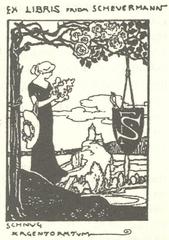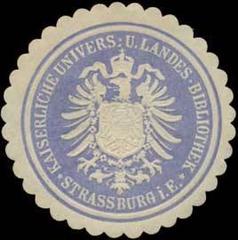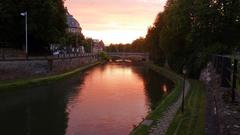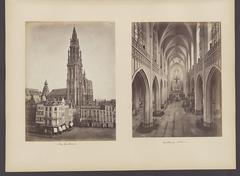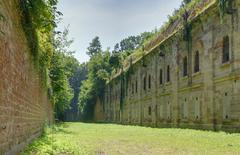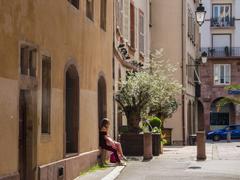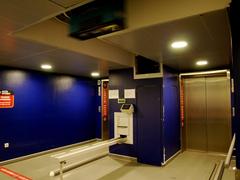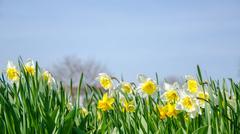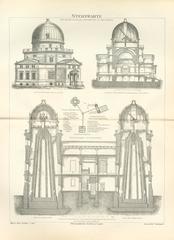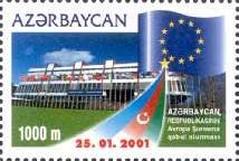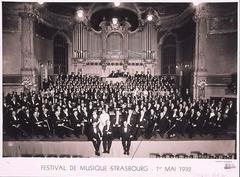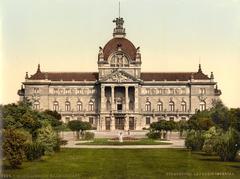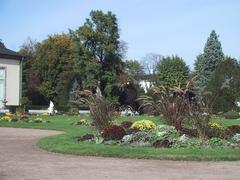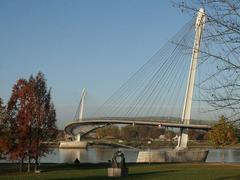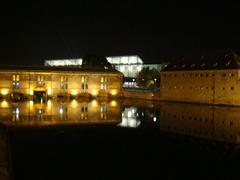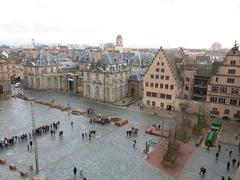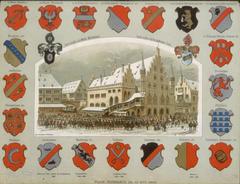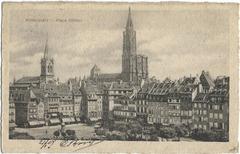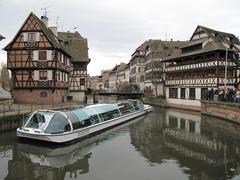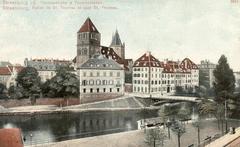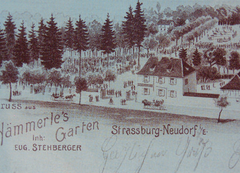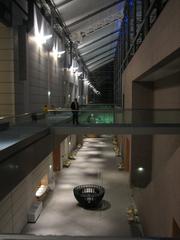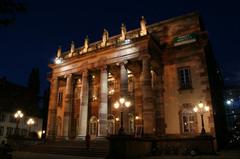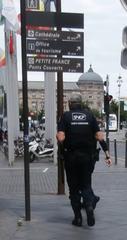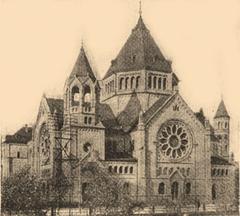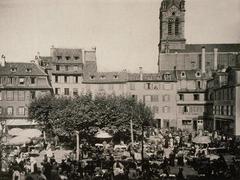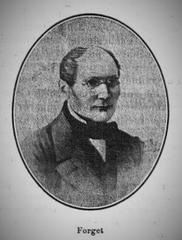Marc Bloch University Strasbourg: Visiting Hours, Tickets, and Historical Sites Guide
Date: 14/06/2025
Introduction
Marc Bloch University, now an integral part of the University of Strasbourg, stands as a testament to the city’s rich academic heritage and its pivotal role as a crossroads of French and German intellectual traditions. Established in 1970 as Université des Sciences Humaines de Strasbourg and renamed in 1999 to honor the visionary historian Marc Bloch, the university is deeply connected to the evolution of modern historical scholarship and intercultural dialogue. Today, its vibrant campus, distinguished faculty, and dynamic student life make it a must-visit destination for history enthusiasts, scholars, and travelers alike (Université de Strasbourg, Le Monde).
This guide provides all the essential details for visitors—covering opening hours, admission, guided tours, and nearby attractions—ensuring a fulfilling experience at one of France’s most distinguished educational and cultural institutions.
Table of Contents
- Founding and Historical Evolution
- Marc Bloch: His Legacy
- Academic Structure and Research
- Visiting Marc Bloch University
- Campus Highlights and Nearby Attractions
- Cultural Events and Student Life
- Visitor Tips and Practical Information
- Frequently Asked Questions (FAQ)
- Conclusion and Planning Your Visit
- References
Founding and Historical Evolution
Marc Bloch University began its story in 1970 as the Université des Sciences Humaines de Strasbourg, focusing on the humanities and social sciences. In tribute to Marc Bloch—an eminent historian, co-founder of the Annales School, and a symbol of intellectual resistance—the university was renamed in 1999 (Université de Strasbourg).
Strasbourg’s academic tradition stretches back centuries, with the city itself serving as a hub for Franco-German scholarship and cultural exchange. Following World War I and the return of Alsace to France, the University of Strasbourg became a laboratory for innovative, cross-disciplinary academic work. The Annales School, launched by Marc Bloch and Lucien Febvre in 1929, revolutionized historical studies by integrating sociology, geography, and anthropology (Academia.edu).
In 2009, Marc Bloch University merged with other Strasbourg universities, forming the modern University of Strasbourg—one of France’s largest and most dynamic academic institutions.
Marc Bloch: His Legacy
Marc Bloch (1886–1944) is celebrated worldwide for his transformative contributions to historical methodology. Educated and later a professor at the University of Strasbourg, Bloch co-founded the Annales School, which forever changed how history is studied by emphasizing long-term social structures and collective mentalities.
Beyond academia, Bloch was a passionate patriot and a leader in the French Resistance during World War II. His execution by the Gestapo in 1944 marked the tragic end of a life devoted to intellectual rigor and moral conviction. His works, including The Historian’s Craft and L’Étrange Défaite, continue to inspire generations of scholars (Le Monde).
Academic Structure and Research
The university’s academic structure is rooted in interdisciplinary collaboration. Its historic divisions included sociology, philosophy, languages, literature, history, geography, arts, sports sciences, and theology. The legacy of the Annales School remains central to the university’s research ethos, attracting scholars from around the world (Université de Strasbourg).
Visiting Marc Bloch University
Visiting Hours
- General Campus Access: Monday through Saturday, 8:00 AM to 6:00 PM.
- Libraries and Galleries: Typically open 8:00 AM to 8:00 PM on weekdays.
- Special Facilities: Botanical Gardens and certain museums generally operate from 9:00 AM to 6:00 PM. Check individual sites for details (Strasbourg Tourist Office).
Tickets and Admission
- Campus Grounds: Free entry; no ticket required for general campus visits.
- Exhibitions & Archives: Some special exhibitions or library collections may require advance booking or a nominal fee.
- Botanical Gardens & Zoological Museum: Free admission (My Global Viewpoint).
- Guided Tours: Fees may apply; advance booking is recommended.
Guided Tours
Guided tours can be arranged via the Strasbourg Tourist Office or the University’s International Welcome Center. Tours highlight the campus’s historical sites, architectural gems, and Marc Bloch’s contributions. Academic groups may request specialized tours (International Welcome Strasbourg).
Accessibility
- The campus is accessible via Strasbourg’s efficient tram network (lines C and E, “Université” or “Gallia” stops).
- Wheelchair ramps, elevators, and accessible restrooms are available in most buildings.
- Multilingual signage (French, English, German) assists international visitors.
Campus Highlights and Nearby Attractions
- Palais Universitaire: A grand 19th-century landmark, hosting lectures, exhibitions, and cultural events.
- Patio and Portique: Notable for their architectural design and role in university life.
- Botanical Gardens: Over 6,000 plant species, a tranquil spot for visitors.
- Library and Archives: Home to rare manuscripts, including materials related to Marc Bloch and the Annales School.
Nearby Attractions:
- Grande Île (UNESCO World Heritage): Medieval streets, the Strasbourg Cathedral, and picturesque squares.
- Petite France: Historic district with half-timbered houses and canals.
- European Institutions: The European Parliament and Council of Europe offer tours (France Travel Blog).
Cultural Events and Student Life
The university is a hub for cultural and academic events:
- Public Lectures and Seminars: Covering topics from history to digital humanities (USIAS Events).
- Festivals: Participation in the Fête de la Musique, Strasbourg European Fantastic Film Festival, and city-wide cultural events (All Events Strasbourg).
- Student Life: A lively café and bar scene in the Krutenau district, annual orientation weeks, and cross-border academic initiatives, including double-degree programs with German universities (Sciences Po Strasbourg History).
Visitor Tips and Practical Information
- Best Time to Visit: Spring (April–June) and autumn (September–October) offer mild weather and fewer crowds.
- Language: French is primary, but English and German are widely spoken.
- Etiquette: The campus is smoke-free; photography is permitted in public areas.
- Safety: The university is generally safe. Maintain awareness of personal belongings and respect campus guidelines.
- Maps & Virtual Tours: Available via the university’s website (Campus Tour).
Frequently Asked Questions (FAQ)
Q: What are Marc Bloch University’s visiting hours?
A: Generally, Monday–Saturday, 8:00 AM–6:00 PM. Some facilities (e.g., libraries, botanical gardens) have extended hours.
Q: Is there an admission fee?
A: No. General campus and most university sites are free to visit.
Q: Are guided tours available?
A: Yes, by advance arrangement through the university or Strasbourg Tourist Office.
Q: How do I reach the campus?
A: Accessible by tram lines C and E (“Université” or “Gallia” stops), bus, bike, or on foot from the city center.
Q: Is the campus accessible for people with disabilities?
A: Yes; most buildings have ramps and elevators.
Q: Which languages are spoken on campus?
A: French is primary, but English and German are commonly used.
Conclusion and Planning Your Visit
Visiting Marc Bloch University is more than a campus tour—it’s an immersion into the intellectual and cultural heart of Strasbourg. The university’s architectural landmarks, rich history, and ongoing academic vitality make it a rewarding stop for all visitors. Combine your visit with nearby attractions, participate in campus events, and take advantage of guided tours for a deeper understanding.
For up-to-date visiting information, events, and tour bookings, consult the official University of Strasbourg website and Strasbourg Tourist Office. To enrich your experience, download the Audiala app for guided audio tours and virtual campus exploration.
References
- Université de Strasbourg
- Le Monde
- Academia.edu
- Sciences Po Strasbourg History
- Edarabia
- France Travel Blog
- USIAS Marc Bloch Chair
- All Conference Alert
- International Welcome Strasbourg
- Strasbourg Tourist Office
- My Global Viewpoint
